While this is not of direct concern for Episcopalians and other non-Roman Catholics, Pope Benedict's recent comments on Islam have caused many to wonder how an infallible person can take back something he said, or even quoted. This is not actually a concern, and no matter what you think of the Roman Catholic doctrine of papal infallibility, one can see that the present problems for the papacy do not conflict with that doctrine.
Specifically, in the context of a university lecture, Benedict XVI quoted a 14th century Byzantine Emperor who said
Show me just what Muhammad brought that was new, and there you will find things only evil and inhuman, such as his command to spread by the sword the faith he preached.
Does this quoted statement now become settled doctrine? By no means.

The idea that the Pope can make infallible statements did not get settled as policy for the Roman Catholic Church until 1870. That year the First Vatican Council ruled that when the Pope speaks "ex cathedra" on matters of doctrine that those statements are guided by the Holy Spirit and will not err. "Ex cathedra" means from the chair and it is used to refer to the Pope issuing a papal bull of decree in his role as successor to Saint Peter. The idea being that when Bishops are divided on an issue, the Pope can be trusted to settle matters of doctrine due to his unique role in leading the church catholic. The Pope's opinions on the weather or the Chicago Cubs chances at winning the series are not covered by the doctrine.
Only one such papal bull has been issued and that was Pope Pius XII's 1950 statement on the Assumption of Mary into heaven. Based not on scripture, but on traditional Roman Catholic teaching, this is the only statement any Pope has ever made claiming the infallibility of St. Peter's Office. Some have said that John Paul II strongly considered a similar statement on the ordination of women, but he did not do so and that is conjecture or rumor. The present Pope is considered unlikely to make any such "ex cathedra" statements.
So there is no problem with Pope Benedict taking back his words.

Over at
Yahoo News, they say that it is actually Christians who were most criticized by Benedict in his lecture,
Actually, the pope's talk was mainly directed against the West. He criticized modernist thinking that relegates religion to a "subculture" (a point on which many Muslims might agree), arguing that such thinking erroneously concludes that faith and reason can't coexist.
So where should all this head? The Rev. Dr. Martin Marty recently wrote,
Rather than point to the "evil and inhuman" nature of Islam's, Judaism's, Christianity's, Hinduism's, Buddhism's and other holy wars, the pope will serve better if he can still find dialogue partners in search of the good and human.
I think there are signs that the current occupant of the chair of Saint Peter does desire some sort of dialogue with those who wish to reclaim what is the best and brightest of their own faith tradition.
All religions have blood on their hands when we look through history. And even in looking to or own day, we are not without our guilt. Rather than looking to convert one another by the sword, we would do better to try to outdo one another in love and thereby win others over by Jesus' command to "love one another." That is one statement that all Christians agree is infallible, even if we don't always live up to it.
In the archives is the religion column
Become a Christian Extremist.
peace,
Frank+
The Rev. Frank Logue, Pastor +
King of Peace Episcopal Church
Jesus is showing how serious it is when we cause a fellow Christian to stumble in their walk of faith. Rather than choosing to leap into the sea with a great millstone tied to our necks, Jesus was kind of hoping we might decide not to cause one another to stumble in our faith....






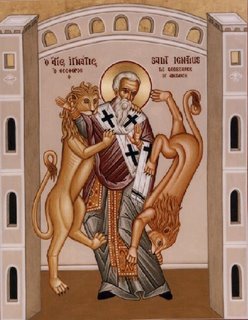
 Our Episcopal faith, "calls us to speak to the issues of war and poverty, bigotry, torture and all forms of terrorism… always stopping short of supporting or opposing political parties or candidates for political office." says, the Rev. Ed Bacon, Rector of
Our Episcopal faith, "calls us to speak to the issues of war and poverty, bigotry, torture and all forms of terrorism… always stopping short of supporting or opposing political parties or candidates for political office." says, the Rev. Ed Bacon, Rector of  I believe that the statements I have read from All Saints Episcopal Church in Pasadena are dead on accurate that the church should neither be silent in the face of injustice nor should it endorse candidates. I also believe that the IRS needs to be neutral on preaching as to take a position seems to break the barrier between church and state in a way that should concern people of any faith and any political persuasion. What do you think?
I believe that the statements I have read from All Saints Episcopal Church in Pasadena are dead on accurate that the church should neither be silent in the face of injustice nor should it endorse candidates. I also believe that the IRS needs to be neutral on preaching as to take a position seems to break the barrier between church and state in a way that should concern people of any faith and any political persuasion. What do you think?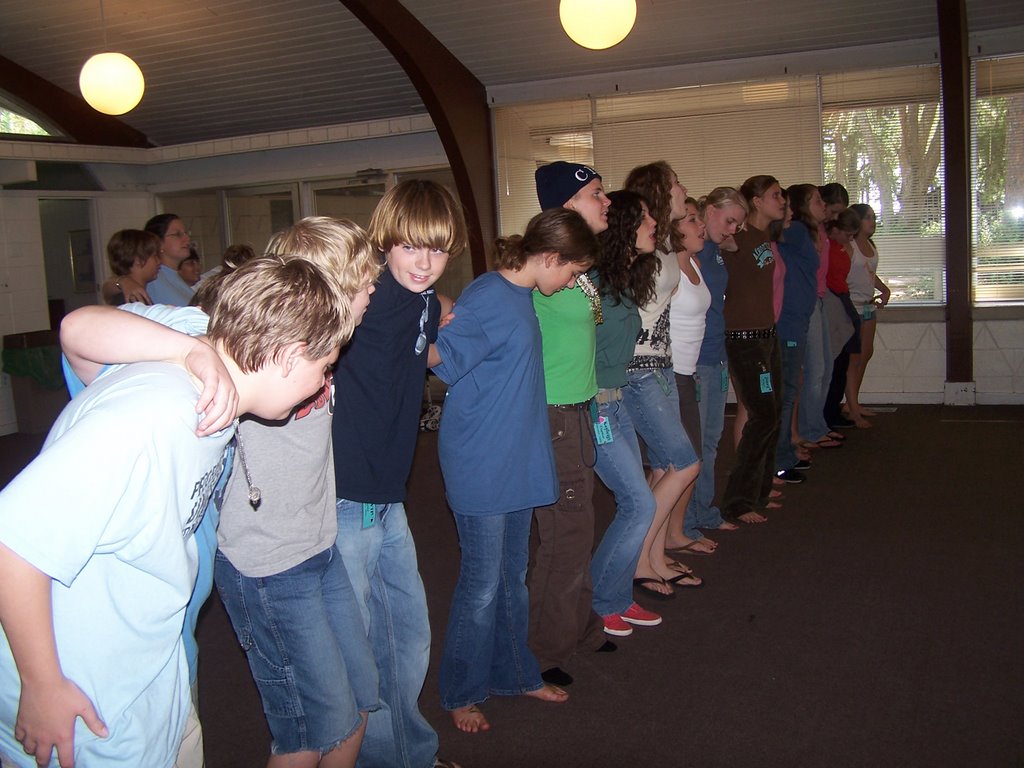 I have spent this weekend as the spiritual director for the Middle School retreat Fall Explosion with kids from around the Diocese of Georgia. We've sang, played, eaten and worshipped together this weekend at
I have spent this weekend as the spiritual director for the Middle School retreat Fall Explosion with kids from around the Diocese of Georgia. We've sang, played, eaten and worshipped together this weekend at 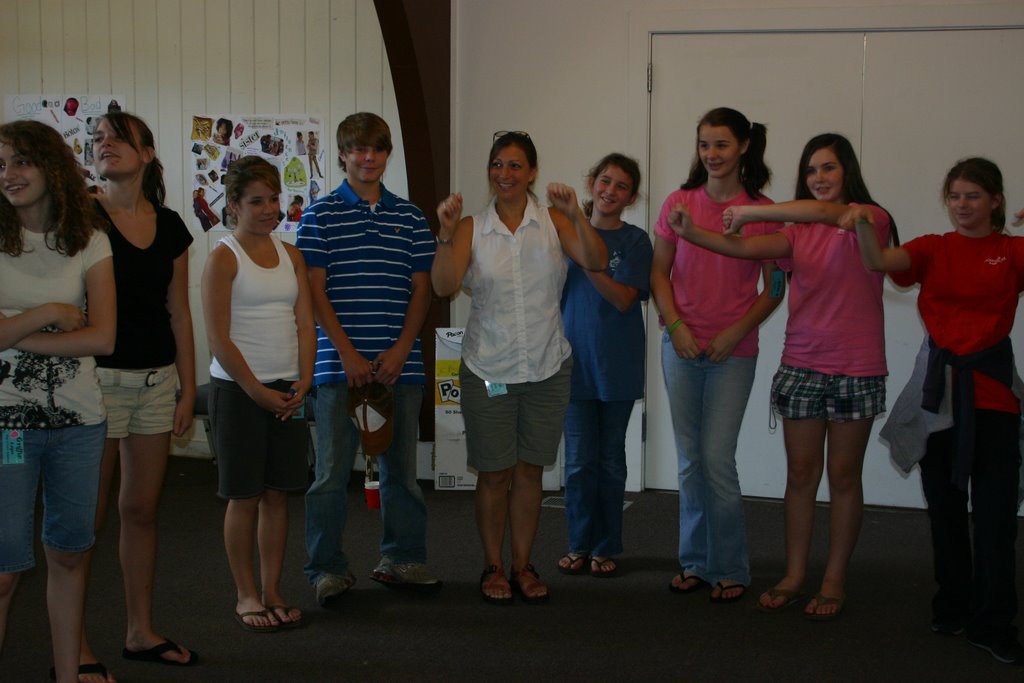
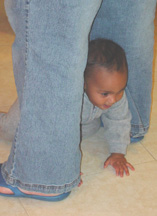







 The idea that the Pope can make infallible statements did not get settled as policy for the Roman Catholic Church until 1870. That year the First Vatican Council ruled that when the Pope speaks "ex cathedra" on matters of doctrine that those statements are guided by the Holy Spirit and will not err. "Ex cathedra" means from the chair and it is used to refer to the Pope issuing a papal bull of decree in his role as successor to Saint Peter. The idea being that when Bishops are divided on an issue, the Pope can be trusted to settle matters of doctrine due to his unique role in leading the church catholic. The Pope's opinions on the weather or the Chicago Cubs chances at winning the series are not covered by the doctrine.
The idea that the Pope can make infallible statements did not get settled as policy for the Roman Catholic Church until 1870. That year the First Vatican Council ruled that when the Pope speaks "ex cathedra" on matters of doctrine that those statements are guided by the Holy Spirit and will not err. "Ex cathedra" means from the chair and it is used to refer to the Pope issuing a papal bull of decree in his role as successor to Saint Peter. The idea being that when Bishops are divided on an issue, the Pope can be trusted to settle matters of doctrine due to his unique role in leading the church catholic. The Pope's opinions on the weather or the Chicago Cubs chances at winning the series are not covered by the doctrine.  Over at
Over at  At the
At the  I'm no Mother Theresa. That's the result from a BeliefNet quiz I took called "How forgiving are you?"
I'm no Mother Theresa. That's the result from a BeliefNet quiz I took called "How forgiving are you?"  When do Christians need to gather with others of courage to stand against unjust practices? When is enough, enough and when do we participate merely with our vote? In an entry at The Questing Parson called
When do Christians need to gather with others of courage to stand against unjust practices? When is enough, enough and when do we participate merely with our vote? In an entry at The Questing Parson called  In
In 
 There is something ineffably right about this. Making toys has become a multi-billion dollar a year business. With so much creativity and techonological savvy going in to their creation, perhaps it should have been predictable that toys could be used to create an alternative to underground nuclear testing (I am not making this up). Perhaps, but I never saw it coming. I'm guessing that you didn't either (nor did Asimov or other science fiction greats).
There is something ineffably right about this. Making toys has become a multi-billion dollar a year business. With so much creativity and techonological savvy going in to their creation, perhaps it should have been predictable that toys could be used to create an alternative to underground nuclear testing (I am not making this up). Perhaps, but I never saw it coming. I'm guessing that you didn't either (nor did Asimov or other science fiction greats).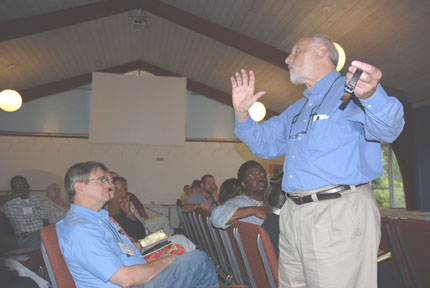
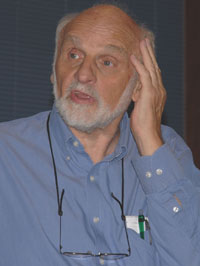 Dr. Walter Brueggemann spoke of the need to recapture public language. He noted that our statement as we end the Lord's Prayer, which we pray each time we gather for worship, is "for thine is the kingdom, and the power and the glory." This he said is "an assertion that the world does not belong to Caesar, Herod, Pharaoh or their ilk."
Dr. Walter Brueggemann spoke of the need to recapture public language. He noted that our statement as we end the Lord's Prayer, which we pray each time we gather for worship, is "for thine is the kingdom, and the power and the glory." This he said is "an assertion that the world does not belong to Caesar, Herod, Pharaoh or their ilk."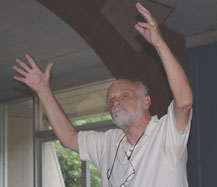 The prophets then picked up these poetic lines and broke the language of the liturgy back out into the world. In these texts Babylon stands in for nations who think their might, wealth and wisdom put them over and above God. The prophets speak against this and note that the world is hard wired so that unjust nations are brought down. In Amos 1-2 for example we get an appeal to creation theology that God's mercy and compassion stand in judgment against these minor states who do not show mercy.
The prophets then picked up these poetic lines and broke the language of the liturgy back out into the world. In these texts Babylon stands in for nations who think their might, wealth and wisdom put them over and above God. The prophets speak against this and note that the world is hard wired so that unjust nations are brought down. In Amos 1-2 for example we get an appeal to creation theology that God's mercy and compassion stand in judgment against these minor states who do not show mercy.
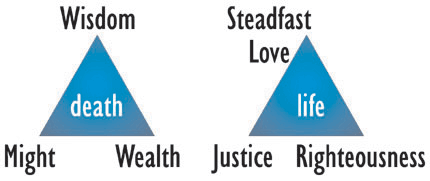




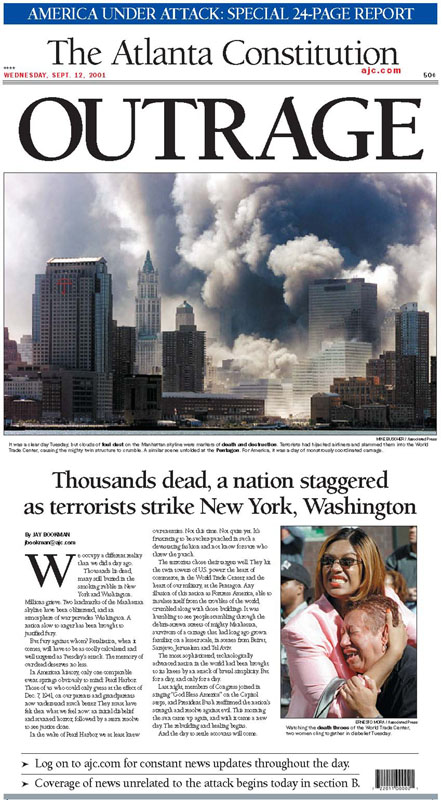
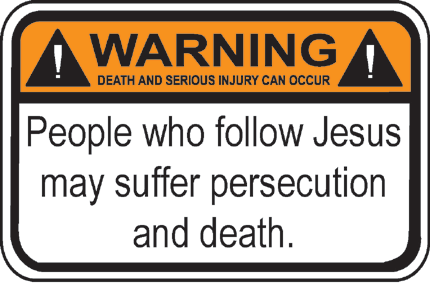
 So why putting his fingers in the man's ears and spitting and touching the man's tongue? If the question is who needed those extra touches, Jesus or the deaf and mute man, I think it was the man in need of healing who needed more. I'm prepared to be wrong, but as this is Jesus who was amazed at the faith of the Centurion who asked that Jesus just say the word rather than come to his house, I won't be wrong by much. Perhaps this is just because I guess I might have needed something more than a word, something physical as well.
So why putting his fingers in the man's ears and spitting and touching the man's tongue? If the question is who needed those extra touches, Jesus or the deaf and mute man, I think it was the man in need of healing who needed more. I'm prepared to be wrong, but as this is Jesus who was amazed at the faith of the Centurion who asked that Jesus just say the word rather than come to his house, I won't be wrong by much. Perhaps this is just because I guess I might have needed something more than a word, something physical as well. 




 A recent cover story for U.S. News & World report was on famous firsts.
A recent cover story for U.S. News & World report was on famous firsts. 
 You have no doubt heard the news that Crocodile Hunter Steve Irwin was killed by a stingray while being filmed off the coast of Australia (
You have no doubt heard the news that Crocodile Hunter Steve Irwin was killed by a stingray while being filmed off the coast of Australia (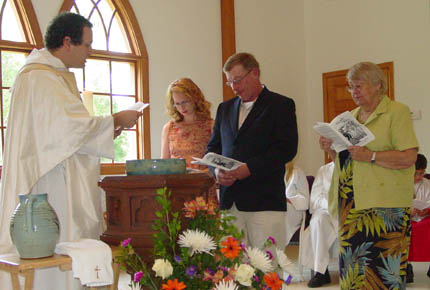
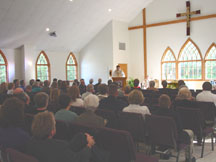 He works on us in all sorts of ways. But over all, He works on us through each other. (People) are mirrors, or "carriers" of Christ to other (people). Usually it is those who know Him that bring Him to others. That is why the Church, the whole body of Christians sharing Him to one another, is so important.
He works on us in all sorts of ways. But over all, He works on us through each other. (People) are mirrors, or "carriers" of Christ to other (people). Usually it is those who know Him that bring Him to others. That is why the Church, the whole body of Christians sharing Him to one another, is so important. 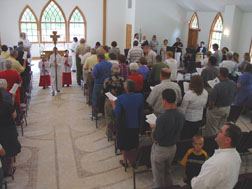 If they are not doing that, all the cathedrals, clergy, missions, sermons, even the Bible itself, are simply a waste of time. God became man for no other purpose. It is even doubtful, you know, whether the whole universe was created for any other reason.
If they are not doing that, all the cathedrals, clergy, missions, sermons, even the Bible itself, are simply a waste of time. God became man for no other purpose. It is even doubtful, you know, whether the whole universe was created for any other reason.






0 Comments:
Post a Comment
<< Home